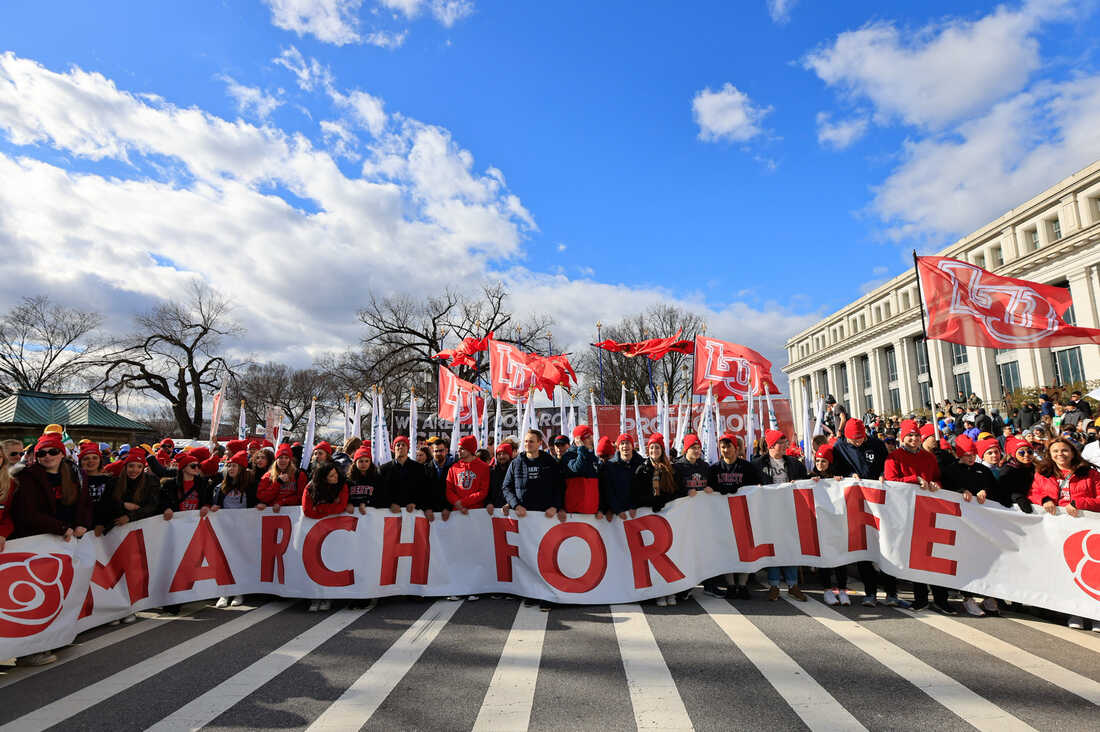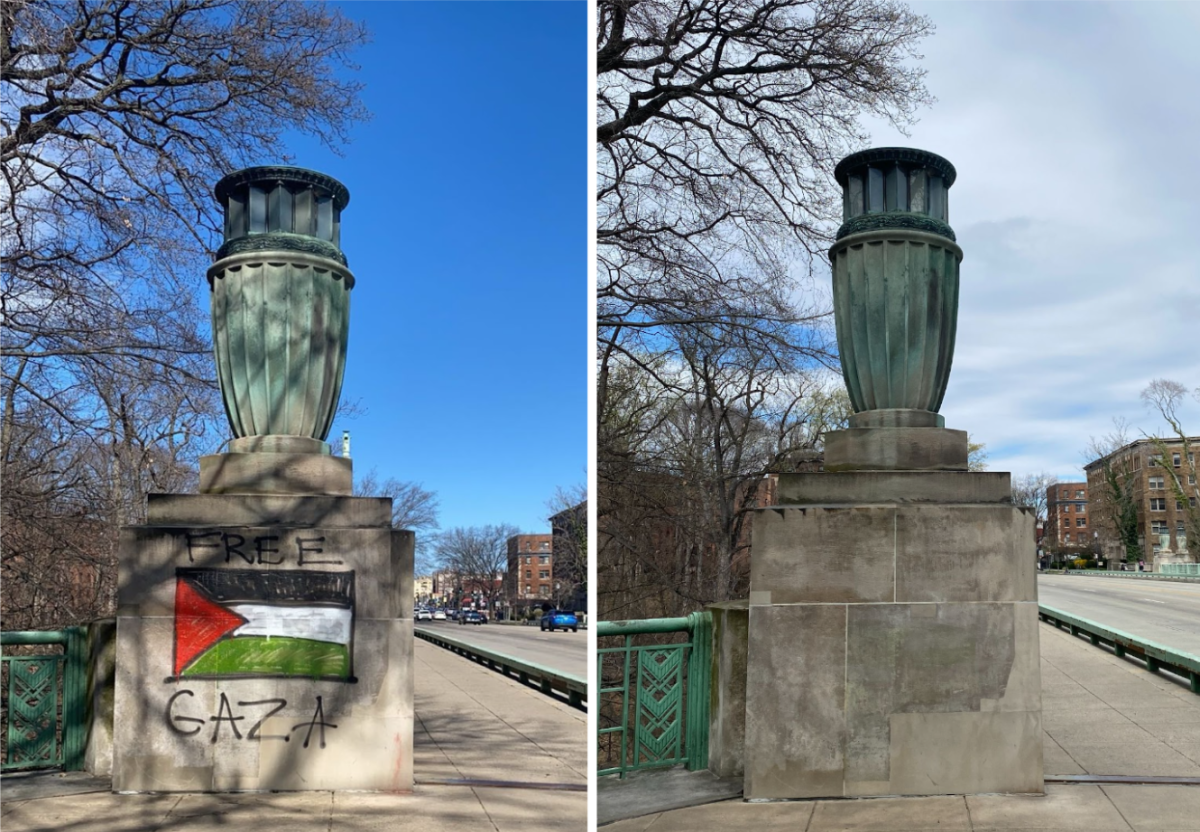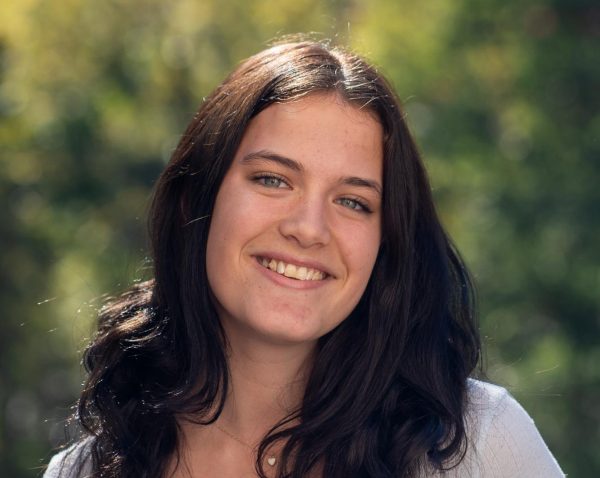A Glenmont-bound D.C. Metro train screeched to a halt at Union Station, seven stops away from the Cleveland Park station near WIS. Crowds could be seen through the grimy windows, huddled on the platforms in matching knitted caps and neon orange vests. Discarded posters littered the marbled flooring tiles where school groups were sprawled, playing cards, eating food and swiping through their phones as they waited for their trains to arrive.
The date was Friday, Jan. 20, around 4 p.m. The annual March for Life at the National Mall had just started winding down, the first anti-abortion rally in D.C. since the Supreme Court overturning of Roe v. Wade.

Union Station bristled with tension; in a city where 92.1% of the population voted Democrat in the last election, the hordes of people advocating for the conservative pro-life campaign were not greeted without enmity.
Hundreds of students and other anti-abortion activists milled throughout the station, some toting signs plastered with scriptures from the Bible and others decked from head to toe in bright anti-abortion gear. One man was reclined on a bench, his knee propping up a sign quoting “Desiderata,” a poem from the 1900s. “To all unborn children,” the poster read. “You are a child of the universe, no less than the trees and the stars; you have a right to be here.”

The rally was a highly-anticipated event by many, an occurrence which brought people from all over the U.S. to D.C. Among those who traveled far were Emma and Susie, two students at the Peoria Notre Dame High School in Peoria, Illinois.
Though their participation in the event was sponsored by the school’s pro-life club, Susie shared that the beliefs that brought them to the rally were entirely their own. “I’m doing this because this is what I believe,” she said.
Other students traveled from Father Gabriel Richard High School in Ann Arbor, Michigan, another private school with a pro-life club attending the march.

The fall of Roe v. Wade does not mark the end of the anti-abortion movement. According to the March for Life campaign, “We will continue to march every January at the national level until a culture of life is restored in the United States of America.”
Around 5 p.m., a garbled voice sounded through the station, prompting the school groups and other protesters to shuffle toward their trains. Students clambered aboard, one by one, already planning their return in 2024.
By Tindra Jemsby



































































